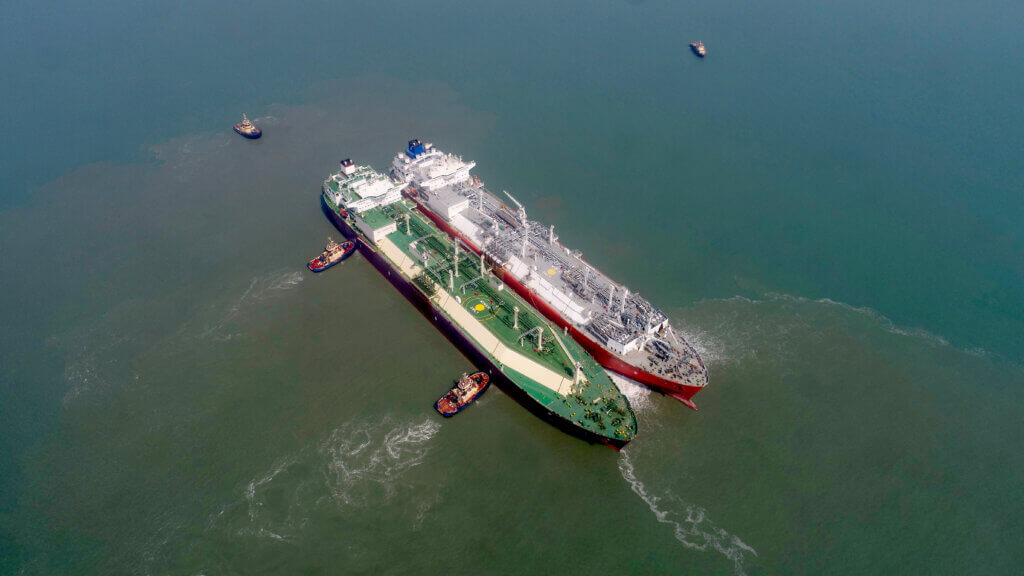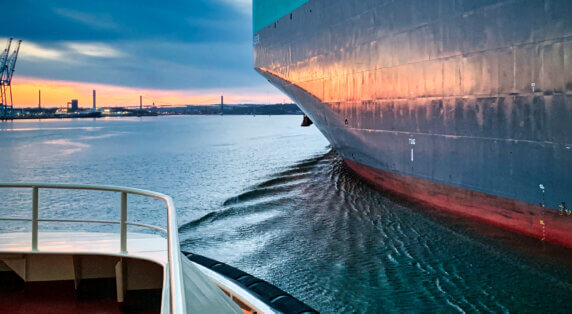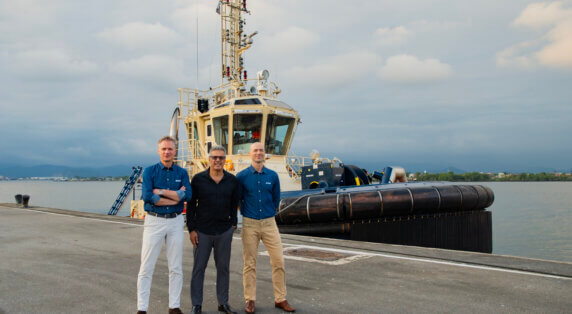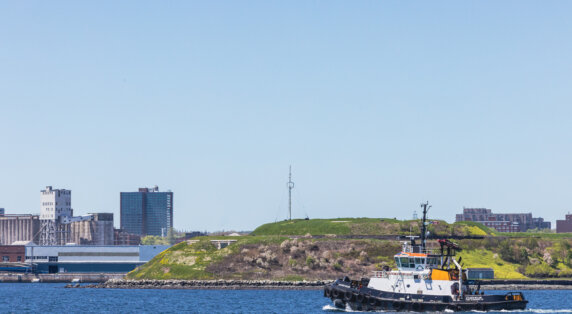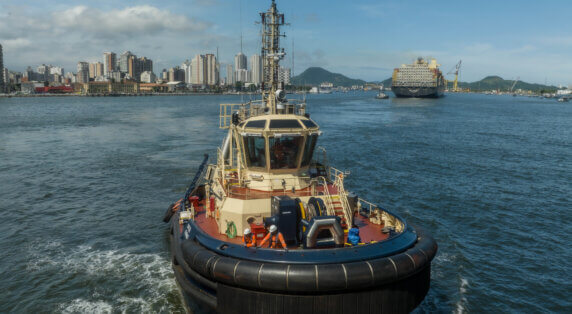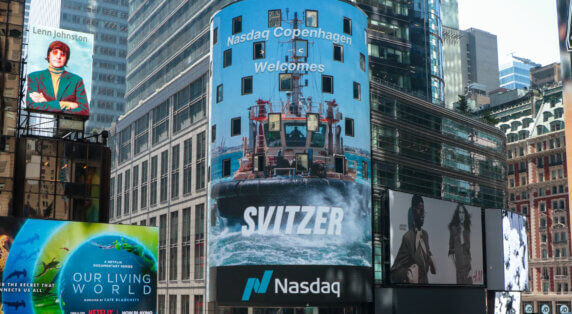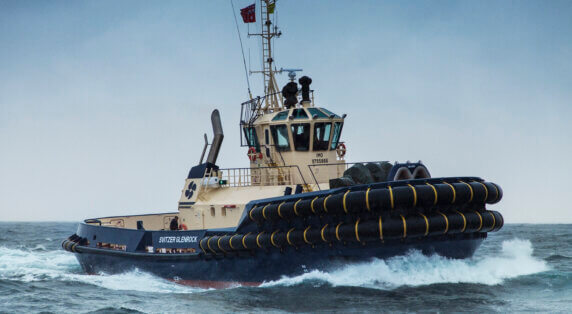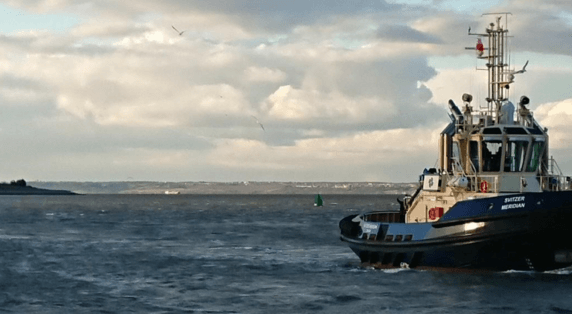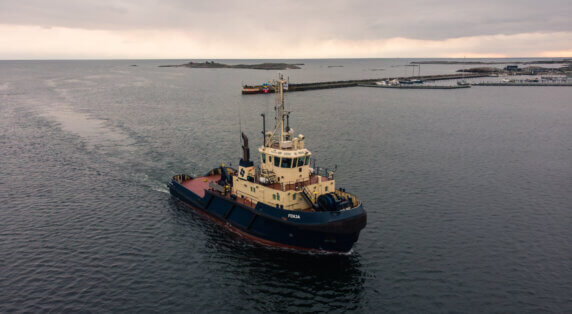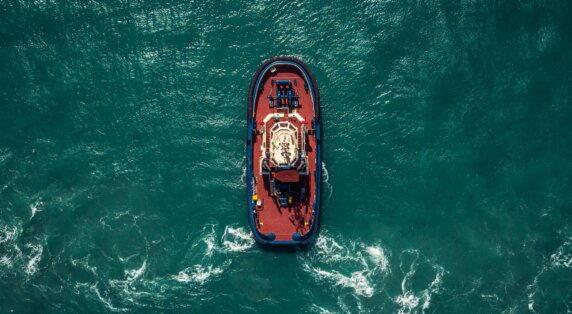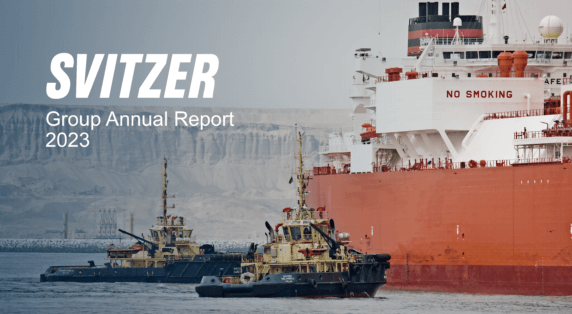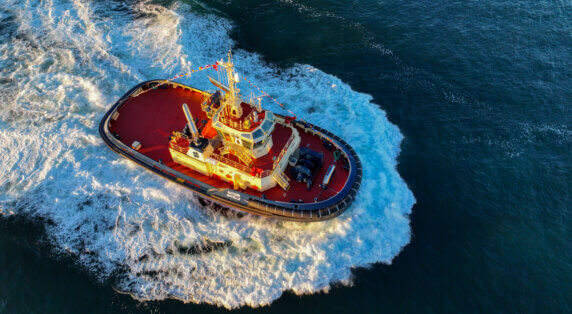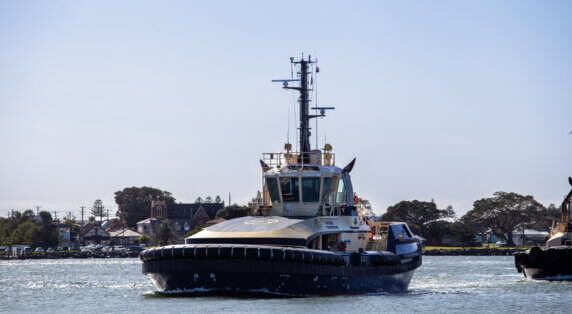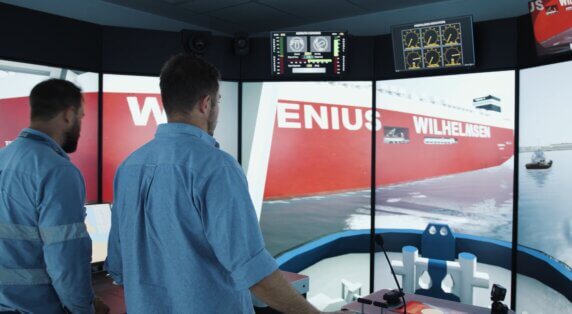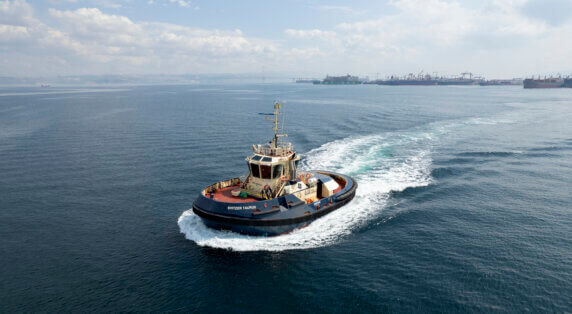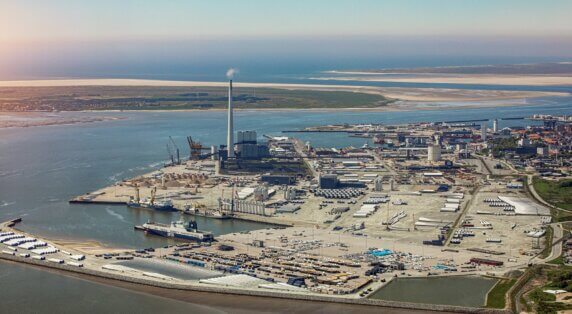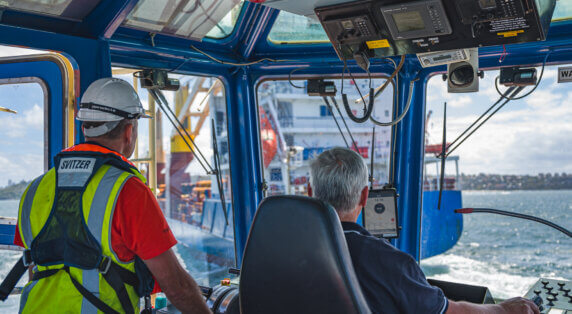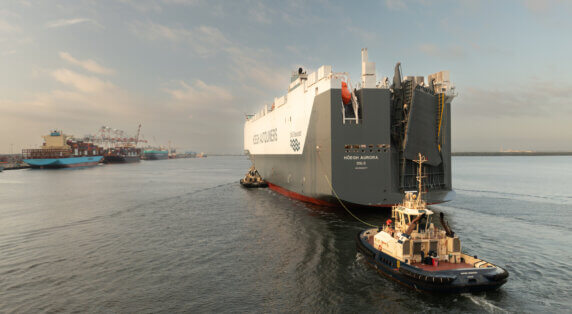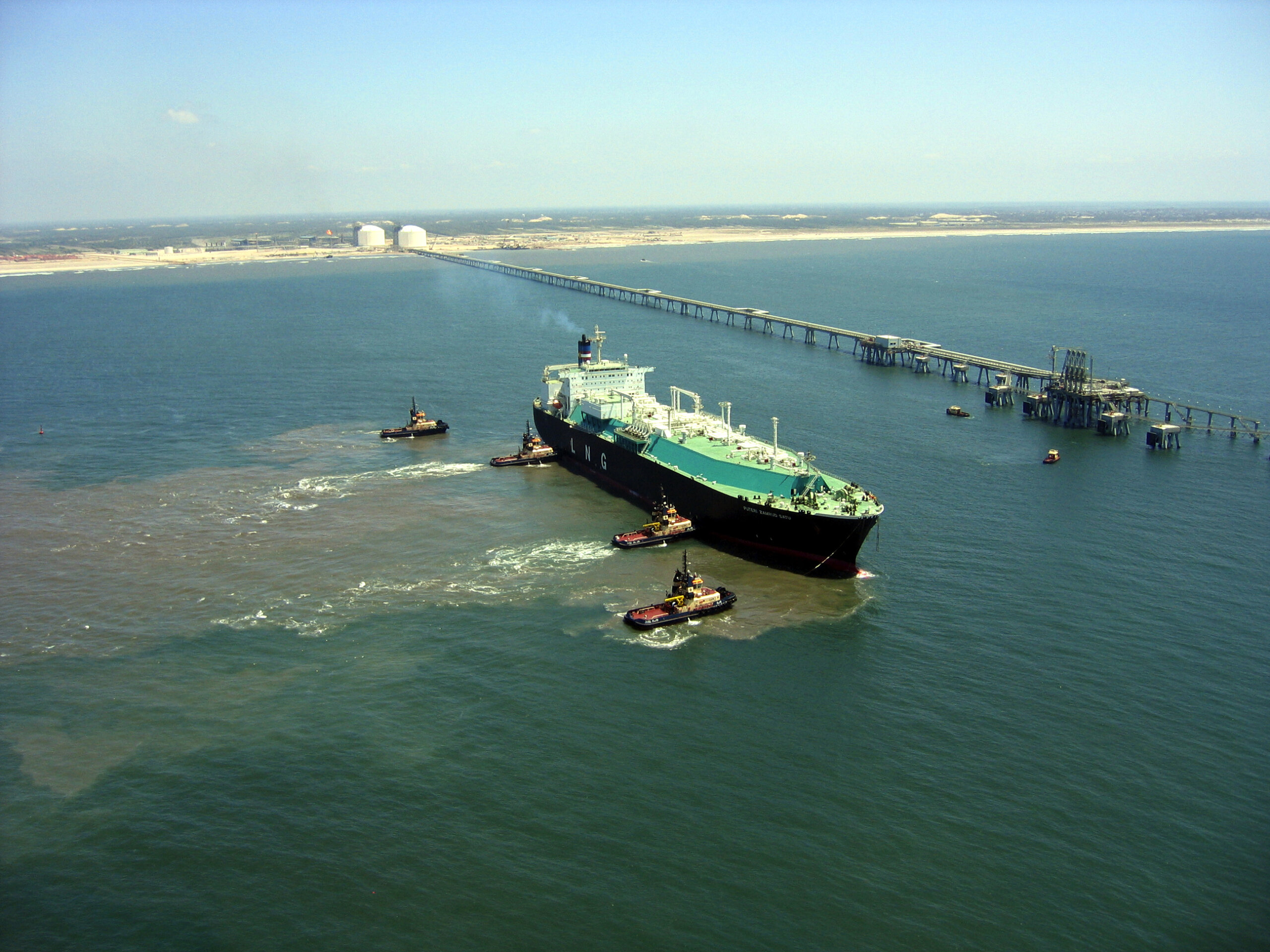
MEETING CUSTOMER NEEDS WITH TAILOR-MADE SOLUTIONS
BECOMING THE PREFERRED LNG PROJECT PARTNER
Liquified natural gas (LNG) is an important fuel used worldwide and its use has surged exponentially over the last decade or so. In line with this, Svitzer ’s experience with LNG projects has grown and today Svitzer is involved in some of the most prestigious projects around the world and has long-term contracts with leading companies in the industry.
In 18 operations across 11 countries, a fleet of 102 vessels is performing a multitude of services such as berthing and unberthing, pilotage, supporting ship to ship transfer, crew transfer, supply services, assistance with maintenance of the LNG terminal, channel buoy maintenance, safety and security standby, emergency response, and firefighting.
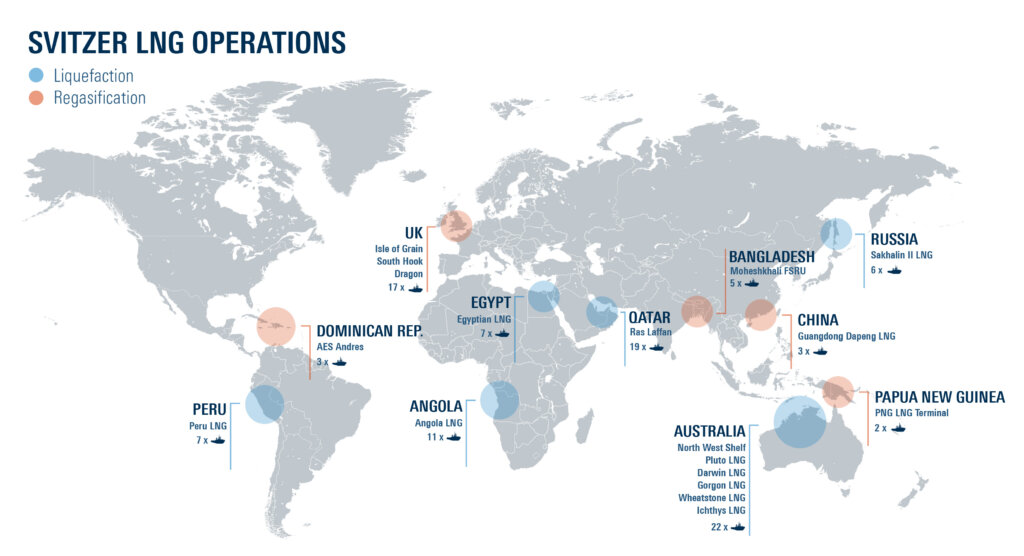
The services provided vary from operation to operation and are tailor-made to meet the customer’s specific needs as well as the conditions of the location in question. In general, operating LNG terminals – be it import or export facilities, floating LNG terminals or a Floating Storage Regasification Unit (FSRU) – is a complex undertaking. And in many of the locations where Svitzer operates, challenging weather conditions only add to the complexity – for instance severe ice conditions in Russia, currents of up to six knots in Angola, two-meter swell and fog in Peru and a sensitive and delicate ecosystem in Australia to name a few.
SAFETY FIRST
Keywords are reliability, safety, and timely performance, as LNG carrier ships are in high demand and so is the need for quick turnaround times.
Each operation differs from the next and therefore each location must be carefully assessed as to which skills are required to ensure the operation is carried out safely and efficiently. Towing LNG carriers in icy waters compared to vessel manoeuvres in high winds and seas have their own individual challenges, and the masters and pilots must manoeuvre the ships in confined spaces as well as open seas. The tugs must therefore have state-of-the-art equipment, including high-end complex winching systems, to ensure operations are completed with the utmost precision – in many cases with less than a few meters to spare.
The interaction and communication must be precise and clear with each team member working closely together from start to finish. The most technical part is the complex way the masters have to handle the ASD tugs (Azimuth Stern Drive) specifically designed for such manoeuvres with LNG vessels. ASD methods have changed dramatically over the years – particularly with regards to high-speed ships, where direct towage methods are no longer practicable and/or effective in many situations and scenarios. Therefore, the tug masters must be able to control the tugs at very high speed while simultaneously towing very powerful vessels, hence striking the balance between power and manoeuvrability is crucial.
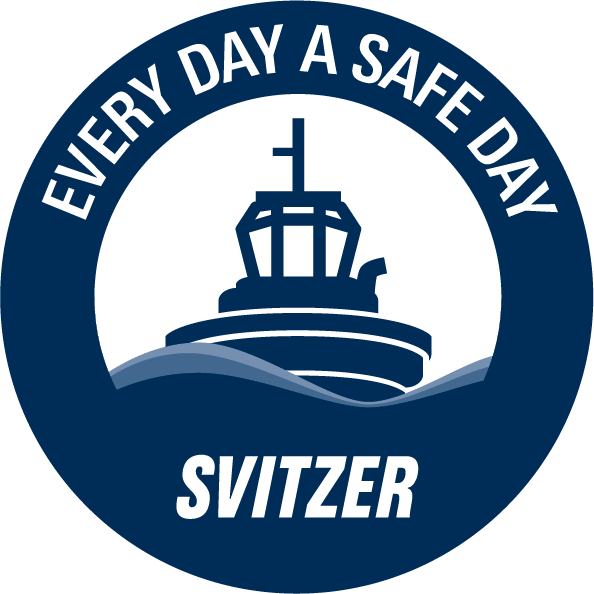
Svitzer works proactively together with its customers to ensure safe, reliable and efficient services. The mantra is “safety first” and Svitzer analyses each operation carefully and carries out extensive risk assessments together with the customer by bridging the standards of all parties involved in the operations, which then become the operational standard that ensures the safety of people, assets and the environment.
In most cases, LNG vessels are escorted by LNG vessel compatible tugs which have escort notation and full firefighting capabilities with specific enhancements to handle LNG cargo, including positive pressure systems enabling the tugs to engage in emergency response in the unlikely event of an incident.
THE PREFERRED LNG PROJECT PARTNER
The future for LNG looks promising and as it is the cleanest fossil fuel, more and more consuming nations are looking towards LNG to replace coal, especially in Asia which is still operating on coal for producing power.
The past ten years have seen an increase in countries with access to LNG and with the development of floating storage and regasification unit (FSRU) technology, changes in local gas demand and supply can be met fairly easily as FSRUs are quicker and easier to establish compared to land-based terminals.
For Svitzer, this development represents promising growth opportunities and the goal is clear; to become the preferred LNG project partner by providing clients a solid experience with greenfield projects, a strong focus on safety, a proven track record of delivering reliable and efficient services and by applying global capabilities, know-how, network and synergies locally.
